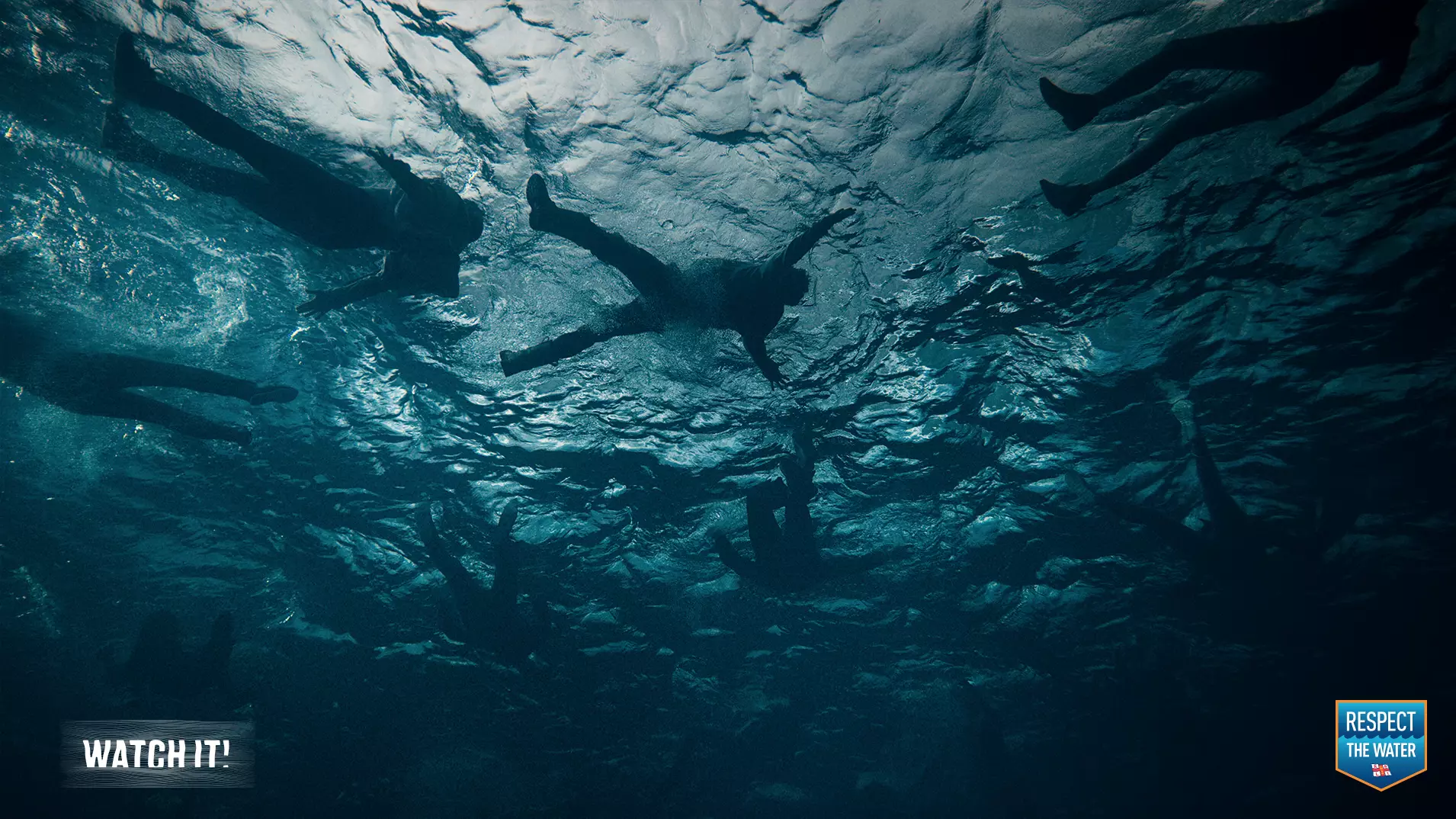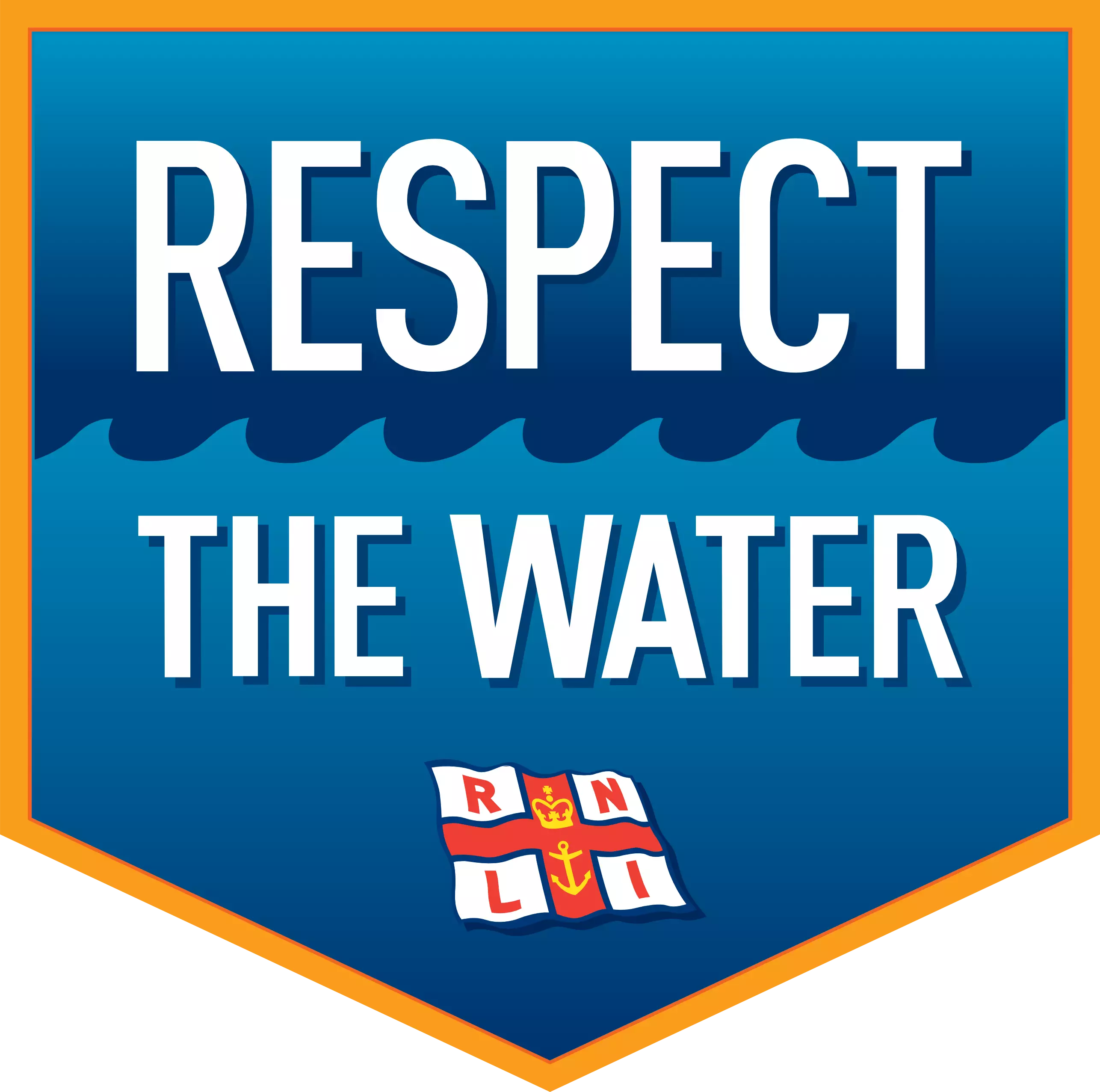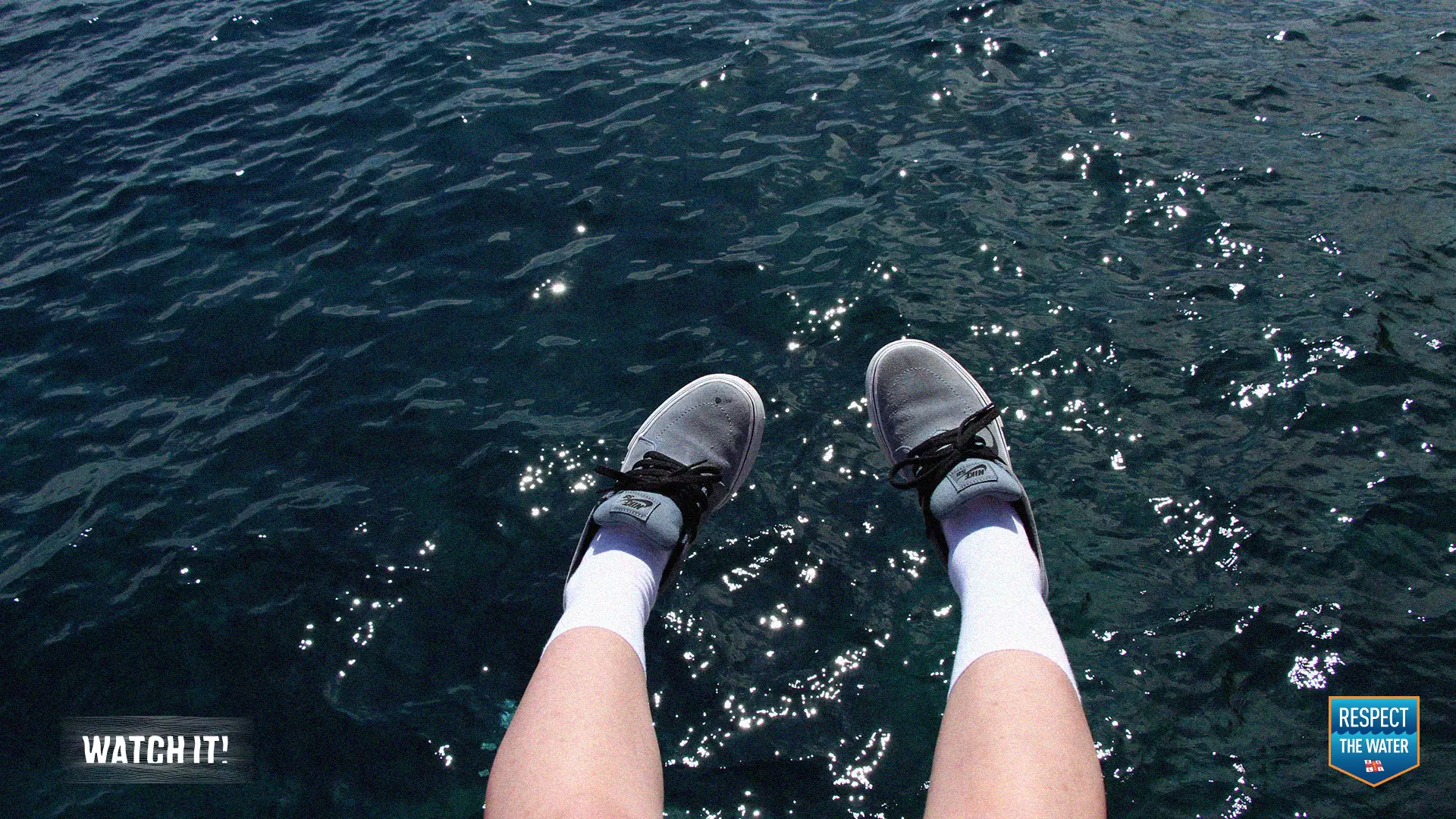
IN PARTNERSHIP WITH RNLI

If you're thinking of heading down the beach to bask in some of that glorious five minutes' worth of British summer sun, you're going to need to take a few things with you. Firstly, there's the obvious essentials: budgie-smugglers, factor 50 and a ridiculously large inflatable. But secondly, you're going to need to take your wits and keep them about you, because as great as it is to take a dip in the sea, cold water can kill.
The waters around the UK are very cold at 10 - 15°, which may not sound that bad, as we tend to think in terms of air temperature, but in water it's a different story - at this temperature, you can and will put yourself at risk of the killer effects of cold water shock.
"Cold water shock is one of the biggest stresses that you can place the body under. Cold water kills and it kills quickly," says Mike Tipton, leading expert in cold water survival from the University of Portsmouth.
"If you are lucky enough to survive long enough to die of hypothermia, you have done very well - most die in the first minute of immersion."

Arsing about at the beach is one of the finest pleasures in life and it's your duty as a human being to enjoy it. However - at the risk of sounding like a weather-beaten old cartoon sailor - the sea can be a cruel mistress. Over the past five years, men just like you and I have accounted for a shocking 77% of all coastal deaths in the UK, and it's cold water that tends to kill on our shores. And this is why we are supporting the RNLI's Respect The Water campaign to help to reduce drownings around the coast.
In most circumstances, following the mantra 'trust your instincts' is a pretty decent shout, but if you find yourself suddenly submerged in the cold waters of the British coast the exact opposite is true, warns Prof. Tipton.
"Our instinctive response to sudden immersion in cold water - thrashing and swimming hard - is potentially a killer.
"It increases chances of water entering your lungs at a time when your breathing is out of control and you are gasping for air, cold water increases the strain on your heart, cools the skin further and lets air escape from any clothing, which then reduces buoyancy."
As professor Tipton says, the natural instinct of panicking and thrashing about if you land in the cold waters of the UK is a big killer. First of all, blood vessels in the skin close, reducing blood flow. Heart rate will increase dramatically too, meaning that even in young and otherwise healthy victims, cold water shock can cause cardiac arrests.
A survey commissioned by the RNLI showed that more than half of the population of the UK population say they would follow a potentially life-threatening instinct if they found themselves suddenly immersed.
That's why we are asking you to fight these instincts - and not the water - if you fall in the water unexpectedly this summer.
Instead of fighting the water float, and do as little as possible when you first land in the water. After around 60-90 seconds the effects of cold water shock will pass, allowing you to regain control of your breathing and increase your chances of survival. Then you can plan your next move, whether that's swimming to safety, calling for help or trying to find something to hold onto to help keep you afloat.
We know that of the 190 people who tragically lose their lives around the British coast each year, around half of them never even intended to enter the water in the first place.
The RNLI's recent study, which included a representative sample of 1,000 people from the UK and 500 from Ireland, found that overall, 16% of people have fallen into water unexpectedly. Of males aged 16-39, over one-fifth (22%) reported they had found themselves in this potentially deadly situation.'
So, go out and enjoy the coast this summer, but take this knowledge about the importance of fighting your instincts with you and we can work together to keep ourselves safe and bring the stats down.
For more information on what to do if you fall unexpectedly into cold water, visit www.respectthewater.com.
Featured Image Credit:Topics: rnli